
In a series of articles on the “Fundamentals of Traditional Chinese Medicine (TCM)”, the main purpose is to help everyone better learn TCM and to break out of the cycle of “only seeking formulas, not learning medicine”. We will use vivid and interesting language and fascinating phenomena to unveil the mysteries of TCM, opening the door to a new world, while also allowing you to understand TCM “not only its principles but also the reasons behind them”.
We have covered quite a few chapters in this TCM fundamentals series, and I believe that many of you have gained some insight into the wonders of TCM. However, while reading the comments, I noticed a problem: some people are learning in a rigid manner.
For example, seeing someone with cold syndrome, they say it is Yang deficiency; seeing someone with hot hands and feet, they say it is Yin deficiency; or many people think that since it is summer, those with Yang deficiency can indulge a little? In fact, all of these are incorrect. As for the reasons, just look at what I will explain today about Kidney Yang deficiency, and you will understand.
So what are the symptoms of Kidney Yang deficiency? They can be summarized as follows:
Symptoms
1. Weakness and pain in the lower back and knees;
2. Men with impotence and premature ejaculation, women with cold uterus and infertility;
3. Persistent diarrhea, undigested food, and early morning diarrhea;
4. Frequent urination, clear and long, with increased nighttime urination;
5. Edema, more pronounced below the waist;
6. Dark and dull complexion;
7. Aversion to cold and cold limbs, especially in the lower limbs;
8. Mental fatigue;
9. Pale complexion, dizziness;
10. Pale tongue with a white coating, weak and slow pulse.
“You see, the symptoms of your Kidney Yang deficiency are quite typical, aren’t they?”
Indeed, the symptoms I listed are very typical, but if one does not know the basic symptoms in advance, how can they seek change? Alright, enough of that, let’s take a look at the “transformation syndrome”!
Case Study of Kidney Yang Deficiency by Li Ke
Liu, female, 43 years old, has had heat in the soles of her feet for 7 years, worse during the day and better at night. She feels a burning sensation at the Yongquan (Kidney 1) point, and regardless of winter or summer, she must extend her feet out of the covers at night to fall asleep. She has taken various nourishing Yin and cooling medicines multiple times, but with no effect. Upon examination, her complexion is rosy, her urination is clear and long, she feels cold in the abdomen, has poor appetite, cannot eat cold food, her knees are particularly cold, her tongue is pale with a thin white coating, and her pulse is deep and thin. The diagnosis is Kidney Yang deficiency with external floating. The prescription is Si Ni Tang (Four Reverse Decoction), consisting of: 60g roasted licorice (Zhi Gan Cao), 30g dried ginger (Gan Jiang), and 30g aconite (Fu Zi). After three doses, the heat sensation significantly decreased, and the cold sensation in her knees disappeared.
“Shouldn’t heat in the soles of the feet indicate Yin deficiency? How can it be Yang deficiency?”
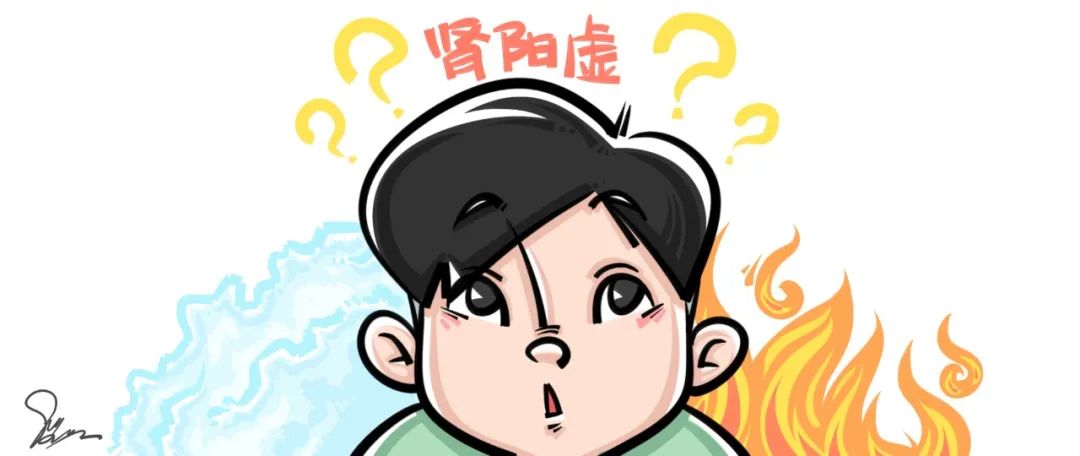
You see, this is the importance of the fundamentals, so to understand why, one must start learning from the beginning!
01
Understanding Kidney Yang
First, we need to know what Kidney Yang is.
Kidney Yang, also known as “True Yang”, “Original Yang”, or “Fire of the Mingmen (Gate of Life)”, has the function of warming and nourishing the internal organs, and is the foundation of Yang Qi in the human body. The kidneys store both pre-natal and post-natal essence, and Kidney essence transforms into Kidney Qi, which has the functions of warming, stimulating, exciting, vaporizing, sealing, and restraining Yin and cold.
Kidney Yang also promotes the body’s metabolism, facilitating the transformation of essence, blood, and fluids into energy, accelerating various physiological activities, increasing heat production, and invigorating the spirit.
Is this a bit complicated to remember? Let me give you an example: we can compare the human body to a steam engine. Everyone understands the principle of a steam engine, right? It involves igniting a fire below, then injecting water into the pipes, and under the heat of the fire, the water turns into steam, which drives the entire machine.

So what happens in the case of Kidney Yang deficiency? It is like the fire below suddenly becoming smaller or extinguished, causing the machine to cool down, and the water cannot turn into steam, thus the entire machine cannot operate. The worst part is that the water faucet is still open, leading to an accumulation of water and ultimately resulting in cold syndrome.
Once you understand this principle, I can explain the symptoms, and you will understand what is happening.
Symptoms · Detailed Explanation
Weakness and pain in the lower back and knees occur because Kidney Yang deficiency cannot warm and nourish the lower back and bones; impotence and premature ejaculation in men, and cold uterus and infertility in women, are due to the kidneys governing growth, development, and reproduction, meaning that to some extent, Kidney Yang controls the development of the reproductive organs, the maturity and maintenance of sexual function, and reproductive capacity.
Persistent diarrhea, undigested food, and early morning diarrhea arise from the decline of the Mingmen fire; according to the Five Elements theory, if fire does not generate earth, the spleen loses its healthy function; frequent urination, clear and long, with increased nighttime urination is due to the kidneys governing urination, and insufficient Kidney Yang leads to bladder Qi transformation obstruction; edema, more pronounced below the waist, originates from the stagnation of water and fluids, overflowing into the skin; indeed, you can understand it as the “water faucet” being continuously open, and the “fire” not being vigorous; a dark and dull complexion is due to extreme deficiency of Kidney Yang, with turbid Yin pervading the skin; aversion to cold and cold limbs, especially in the lower limbs, is because Yang deficiency cannot warm the skin.
Next, let’s explore what situations can lead to Kidney Yang deficiency.
1. Constitutional Yang deficiency, which refers to the imbalance of Yin and Yang in the body due to congenital or acquired factors, affecting the kidneys and leading to Yang Qi deficiency.
2. Aging and kidney depletion, where the Yang Qi of the kidneys declines, and the vitality of the kidneys determines the youthfulness of the body; conversely, as the body ages, the kidneys also begin to weaken.
3. Chronic illness harming the kidneys, where any disease that progresses to a severe degree can affect the kidneys, leading to Yang Qi deficiency, hence kidney diseases are often deficiency syndromes.
4. Excessive sexual activity, where unrestrained sexual life, such as frequent sexual activity, early marriage, or masturbation, can deplete Kidney Yang.
5. Excessive fear harming the kidneys, as different emotions correspond to the five organs; for example, joy corresponds to the heart, anger to the liver, thought to the spleen, worry to the lungs, and fear to the kidneys; thus, excessive fear can lead to instability of Kidney Qi.
Causes of Disease
I believe everyone can understand these points, but there is also one important factor related to summer, which is Spleen and Kidney Yang deficiency. At this point, some may wonder how Kidney Yang deficiency can also involve the spleen? Let me explain slowly.
We must understand that the relationship between the spleen and kidneys is very close; the spleen governs transportation and transformation, generating Qi and blood, which is the foundation of post-natal life; while the kidneys store essence, which is the original source of life, representing pre-natal life.
On the other hand, the spleen’s function of transportation and transformation is the result of the cooperation of spleen Qi, spleen Yin, and spleen Yang, but it relies on the support and regulation of kidney Qi, kidney Yin, and kidney Yang. Kidney essence and its generated vital Qi also depend on the continuous nourishment and cultivation of the refined essence from food by the spleen. Pre-natal and post-natal life mutually support and promote each other. Pre-natal warmth stimulates post-natal life, while post-natal nourishment cultivates pre-natal essence.
As mentioned in the “Essential Readings of Medical Classics: Deficiency and Exhaustion”: “…the spleen and kidneys are the source of all things; earth is the mother of all things. When these two organs are harmonious, the whole body is treated, and a hundred diseases do not arise. The spleen possesses the virtue of earth; when the spleen is stable, the kidneys are also stable. The kidneys contain both water and fire; when the kidneys are stable, water does not disturb the liver and soil, and fire can benefit the earth, promoting the transformation of refined essence; thus, when the kidneys are stable, the spleen is also stable.”
However, if one side has a problem, the other will inevitably be affected. Therefore, insufficient kidney essence and insufficient spleen essence, weak spleen Qi and deficient kidney Qi, spleen Yang deficiency and decline of Mingmen fire, etc., can often influence each other and are mutually causal.
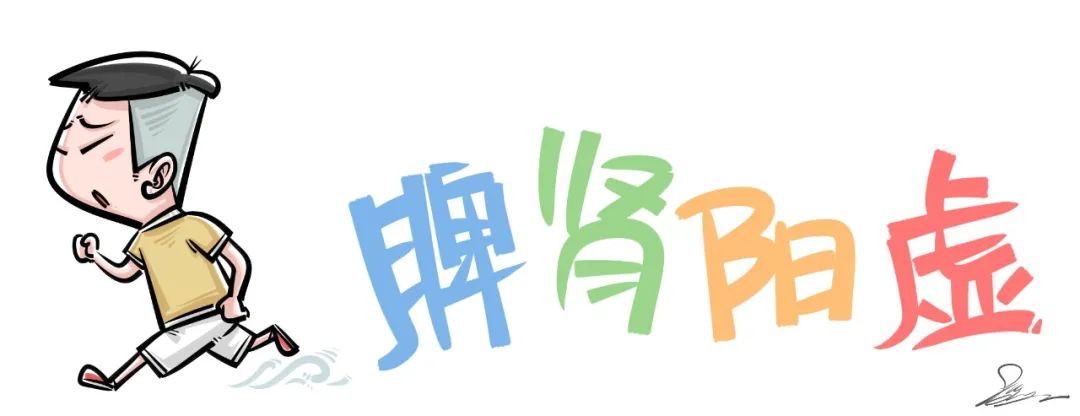
In other words, do not think that since it is summer, I am still Yang deficient, and I can eat some cold drinks and enjoy the air conditioning without any issues. Little do you know that once cold substances enter the body, the spleen Yang will be immediately harmed, and then Kidney Yang deficiency will also “wait for an opportunity to act”.
Summer is already a time when dampness is severe, and the spleen’s physiological characteristic is to prefer dryness and dislike dampness. One of the conditions for spleen Qi to rise is that the spleen must be dry and not hindered by phlegm and dampness; as stated in Qing Dynasty’s Wu Da’s “Medical Truth Seeking”: “When the spleen is dry, it rises.” If spleen Qi is weak, the function of transporting and transforming water and fluids is impaired, leading to the internal generation of phlegm and dampness, which is referred to as “spleen generating dampness”; once dampness is produced, it can further hinder spleen Qi, causing spleen Qi to fail to rise and spleen Yang to be weak. When spleen Yang has problems, how far can Kidney Yang deficiency be?
After explaining this, do you still dare to “commit an offense against the wind”? “Indeed, it seems that one must remain vigilant at all times. But there is still one thing you seem to have forgotten to mention: why is the heat in the soles of the feet in the medical case Kidney Yang deficiency?”
This is actually quite simple. When Kidney Yang is deficient, it is unable to warm and secure the body, so the internal cold becomes very strong, pushing out the remaining Yang Qi, resulting in a complexion that is rosy like peach blossoms; the heat in the feet is the same, as Yongquan is the Jing point of the Kidney Shaoyin channel, and is also where the Yang Qi of the kidneys emerges. When the virtual Yang is forced down by the real cold, it causes heat in the soles of the feet.
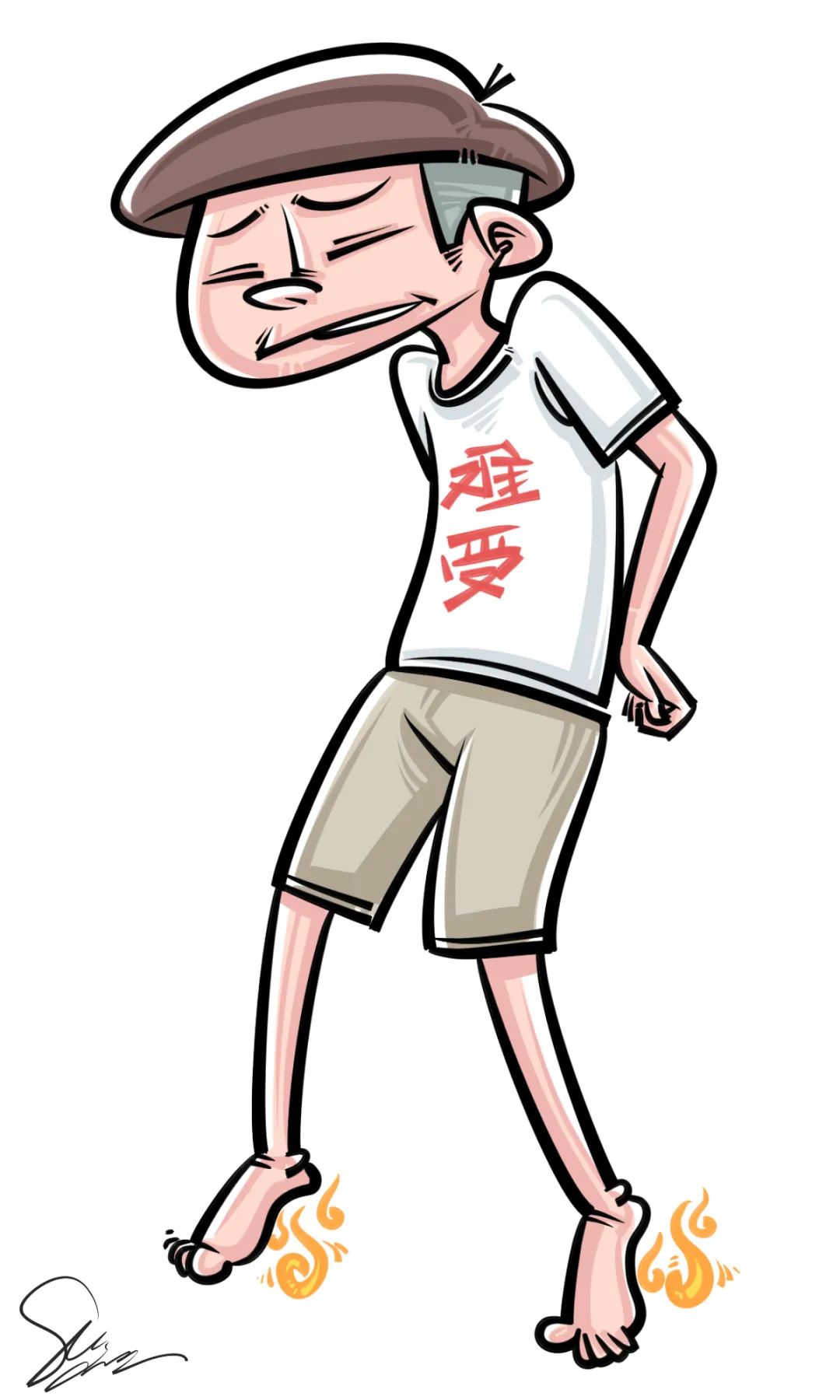
02
Si Ni Tang and Jin Gui Shen Qi Wan
So it turns out that I should also drink some Si Ni Tang! Wait, this Si Ni Tang is not that simple.
Although Si Ni Tang can replenish Yang, it is quite powerful because its description includes: warming the middle, dispelling cold, returning Yang, and rescuing from reversal. It is used for Yang deficiency leading to collapse, cold sweat, reversed cold limbs, and clear diarrhea, with a weak pulse that is about to disappear. This means that under normal circumstances, we do not recommend everyone to use it casually, unless it is for elderly individuals over 60 years old with Yang deficiency.
Mr. Li Ke once mentioned that when elderly individuals reach a certain age, their Yang Qi will weaken, leading to many symptoms. For elderly individuals over 60 with Yang deficiency, Si Ni Tang can be used as a health supplement in small amounts over a long period, which can eliminate the long-term accumulation of external evils and internal cold evils. It can also adjust the original Yang to prevent damage and prolong life, and moreover, this formula does not cost much.
If Si Ni Tang cannot be used, what should be used? The answer is You Gui Wan or Jin Gui Shen Qi Wan, both of which are suitable. The composition of Jin Gui Shen Qi Wan is: 8 taels of cooked rehmannia (Shu Di Huang), 4 taels of Chinese yam (Shan Yao), 4 taels of Chinese wolfberry fruit (Shan Zhu Yu), 3 taels of poria (Fu Ling), 3 taels of water plantain (Ze Xie), 3 taels of moutan bark (Mu Dan Pi), 1 tael of cinnamon (Gui Zhi), and 1 tael of aconite (Fu Zi).
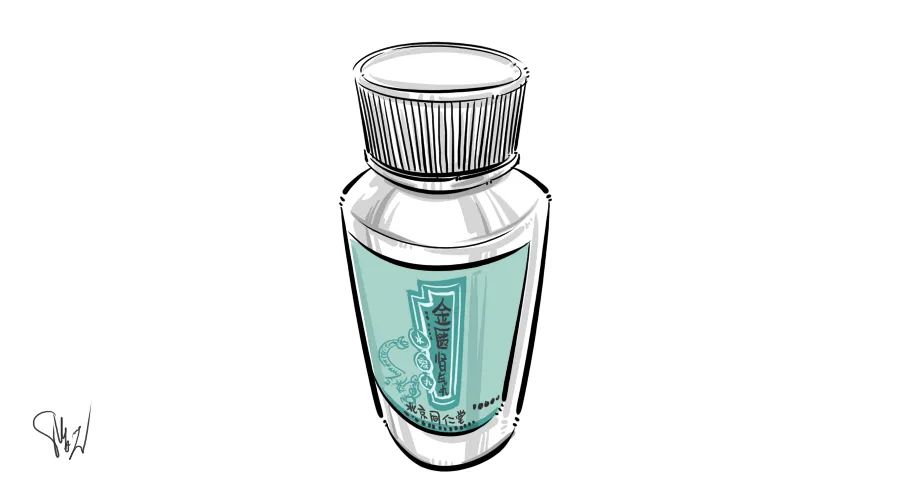
Everyone knows that this is based on Liu Wei Di Huang Wan with the addition of cinnamon and aconite. Many people are curious why adding two herbs that replenish Yin turns it into a Yang-replenishing formula? This is because ancient people believed that Yin and Yang mutually generate and root each other; without Yang, there is no Yin, and similarly, only when Yin is sufficient can Yang be generated. If either one is lacking, the other will become isolated Yin or Yang, leading to extinction. Therefore, sufficient Yin is the foundation for the survival of Yang. In this formula, Yin is first replenished, and then cinnamon and aconite are used to guide the transformation of Yang Qi.
To put it simply, we can compare Yin to a barrel of gasoline; the gasoline itself does not ignite. What is needed to ignite it? A match is needed. Once the match is lit and thrown into the barrel, the gasoline ignites into a roaring fire. At this moment, do we need a whole box of matches? No, just one is enough; that is the principle.
To briefly explain the difference between You Gui Wan and Jin Gui Shen Qi Wan: although both are representative formulas for replenishing Kidney Yang, their focus is different, leading to some differences in usage. Jin Gui Shen Qi Wan is more about balanced replenishment, often used to treat diseases related to water metabolism due to dysfunction of the “kidneys governing water”; while You Gui Wan uses a large number of Yang-replenishing herbs, focusing on warming and tonifying, often used to treat reproductive issues due to dysfunction of the “kidneys governing essence”. Remember this point.
Finally, here are a few suggestions for individuals with Yang deficiency during summer:
1. Mental Nourishment
Individuals with insufficient Yang often exhibit poor emotional states, such as those with Liver Yang deficiency being prone to fear, and those with Heart Yang deficiency being prone to sadness. Therefore, it is important to manage your emotions and reduce the impact of negative feelings.
2. Environmental Adjustment
Individuals with Yang deficiency have poor adaptability to temperature changes; they feel cold even with slight drops in temperature. Therefore, in the harsh winter, one should “avoid cold and seek warmth”; in spring and summer, one should pay attention to nourishing Yang Qi. “Do not be averse to the sun”; some have pointed out that if one can take 20 to 30 sunbaths in summer, each lasting 15 to 20 minutes, it can greatly enhance the ability to adapt to the severe cold of winter.
Because in summer, the Yang Qi of the body tends to the surface, and the pores open; individuals with Yang deficiency should not sleep outdoors, and should avoid direct airflow from fans while sleeping; in rooms with air conditioning, one should be careful not to have too large a temperature difference between indoors and outdoors, and avoid staying too long in shaded areas, water pavilions, or breezy corridors. If one does not pay attention to summer cold prevention and seeks immediate comfort, it can easily lead to conditions such as numbness in the hands and feet or facial paralysis, which are referred to in TCM as “wind bi” diseases.
3. Physical Exercise
Since “movement generates Yang”, individuals with Yang deficiency should strengthen physical exercise, consistently engaging in activities 1-2 times daily throughout the year. Specific activities can be determined based on physical strength, such as walking, jogging, Tai Chi, Five Animal Frolics, ball games, and various dance activities, and sunbathing can also be done to strengthen the protective Yang.
Alright, we have completed the discussion on Kidney Yang deficiency and this special case study. Does it feel like treating diseases and saving lives is not that simple? In fact, it does not require everyone to achieve perfection; we just hope that when you see a doctor and take medicine, you can be cautious and think more, and not be arrogant or complacent.
— THE END —
Related Articles Review
♥ Things You Should Know About Lung Yin Deficiency!
♥ Don’t Take Kidney Deficiency Lightly, Beware of Insomnia!
For more related articles, please search within the public account.
♥ Article Search Guide
❃ Article by: Yuan Li
❃ Illustrations by: Ba Sui
❃ Edited by: Yuan Li
❃ Reviewed by: Zi Ye
❃ All images in the article are credited; please do not use without authorization.
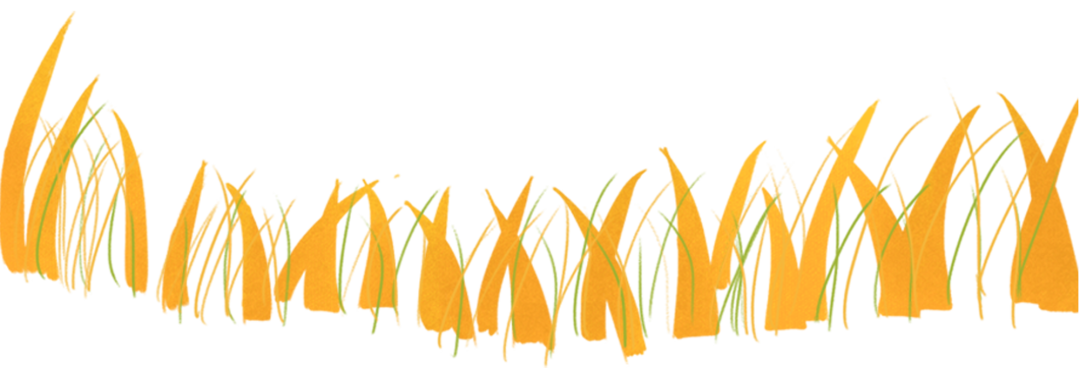


Prize-Winning Essay Collection
If you also have a story related to TCM that must be told, you can write it down and submit it to us at any time. Please submit your article in Word document format to our email.
Please ensure that the submitted article is original and include your WeChat nickname, name, phone number, address, and other contact information. After screening, we will obtain authorization from the author to publish it in our channel. Once published, we will send you a signed book by Dr. Luo!
Thank you all for your positive feedback, and we look forward to you sharing your story with TCM with us and more people, allowing more individuals to experience the charm of Chinese culture.

Dr. Luo’s official WeChat public account has the following four, please scan the QR code to follow; all others are imitations, please do not be deceived!

Dr. Luo’s Channel
WeChat ID: luodalunpd
Da Lun Academy
WeChat ID: Dalun_sy


Da Lun Parenting Talk
WeChat ID: dalun_yes
Dr. Luo Da Lun
WeChat ID: Drluodalun

🔹 The copyright of original articles in this public account belongs to this account. If you need to reprint, please leave a message to the editor and indicate the source. Commercial use is prohibited.
🔹 The articles reprinted by this public account are for learning and communication purposes only and fall within the scope of fair use. If there are errors in the attribution of images, data sources, or text copyright, please inform the editor, and the editor will correct or delete them immediately.
🔹 This public account holds the portrait rights of Dr. Luo Da Lun. Any unauthorized use will be pursued legally.
🔹 This public account is legally supported by Beijing Zhongzhe (Shenyang) Law Firm. This account will pursue legal responsibility for any unauthorized reprints, commercial use, and refusal to delete posts after warnings.

